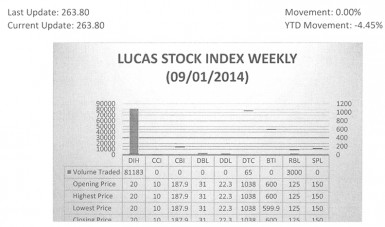The recent drama surrounding the forestry sector in Guyana is likely to rekindle interest in the effect that exploitation of the natural resources can have on the country. Apart from unease about the seemingly reckless handling of the forests, there are concerns about the secretive way in which contracts are negotiated and apprehensions about revenue flows and their benefits to Guyanese as a whole. Guyana would also have to think about the risks of relying too much on natural resources for its progress given the resurgence that many natural resources have had in recent years. There is a plethora of thoughts on the problems and their solutions. This article however will comment on some of the implications that the development of the natural resources of Guyana could have on the economy.
Importance of natural resources
Even without the knowledge of science, it is not difficult to figure out what natural resources are when one speaks of them. Saying that it is everything built by nature and not by man would not be inaccurate. Natural resources therefore include land and everything on it, below it, above it and around it that came without the input of humans. The relevance of natural resources however comes from the use that is made of them. From the study and understanding of their properties and physical structure, humans have been able to ignore many that qualify as natural resources. They also discriminate among them selecting those which could be of service to their survival and comfort. In that sense, the importance of natural resources is determined by the needs and desires of consumers or producers, and the resources that matter are the ones that enter the production, trade and consumption stream. For a country like Guyana, it would be commodities like bauxite, diamonds, fish, forestry, gold, manganese and similar products that are produced and exported. The comments made herein though would refer more to the minerals, metals and forests.
Some of the more useful natural resources of Guyana are easily accessible while others require more risk to limb, life and money. The forest resources could come with more ease than gold and bauxite because they are easier to reach. Bauxite and gold which require a little more effort and money are harder to access. Frequent occurrences in the natural resource sector, the gold and diamond in particular, are deaths by drowning and murder. Though not a focus of this article, it is noteworthy to mention too that fishing has become dangerous on account of the rise in piracy in some of the grounds where Guyanese fish.
Unique feature
A unique feature of natural resources is that they have to be extracted. Consequently, critical to the access of resources is technology suitable to large scale extraction, and in most cases, Guyana does not possess the required technology. The technologies needed are in the hands of others. Demand for the natural resources come from those who possess the technology and can use it. The two interests in the natural resources are brought together through the process of negotiation and exchange. The process of negotiation and exchange is fraught with difficulties often for the countries possessing the natural resources. After reaching agreement on the development of the resources, other problems such as the Dutch disease, volatility in the market, and the manner in which revenues are managed could emerge.
Asymmetry
The lack of information presents problems for what goes on in Guyana, but careful studies are needed to understand the effectiveness of contracts negotiated by the government. But public comments by prominent commentators suggest that Guyana does not get the best deal available. Persons who have studied the situation of other countries have noted a particular weakness about natural resource contracts negotiated by developing countries. They have found that many of these contracts reflect the asymmetry in information about the resources and the asymmetry in technological capacity. This lopsided knowledge and capacity put government at a disadvantage and create difficulties for it to negotiate effective contracts with foreign companies.
They believe that salvation in relation to this problem usually lies in competition. The more companies that want to do business in a given natural resource industry create an atmosphere of competition which makes it possible to receive a greater share of the market value of the resources. A problem in Guyana is that many contracts are negotiated in secret and the details are not shared with the people in sufficient detail. Nobel Prize winner Joseph Stiglitz and his colleagues Jeffrey Sachs and Macartan Humphreys in a book on Escaping the Resource Curse feel that secrecy actually hurts rather than helps the government in the negotiations. Even though government might feel that disclosing information to the public could be a constraint on its negotiations, the authors believe that transparency of negotiated outcomes could produce far better results for the country. In their view, if companies knew that contracts would be scrutinized during or even after the negotiations, they could feel pressure to offer better deals to governments than they otherwise might.
Dutch disease
Linked to the issue of natural resources is also the economic phenomenon known as the Dutch disease. The Dutch disease is one in which a sudden increase in income coming from natural resources could lead to a rise in the exchange rate. The appreciation in the exchange rate causes other export products to become uncompetitive, leading to a decline in production. Additional pressure on domestic production comes from the spending effect where cheaper imports compete with locally produced products. Things worsen with the resource pull effect which causes labour and other resources to leave other sectors and head to the more lucrative natural resource sector. Studies also show that the natural resource sector tends to boost the construction industry at the expense of other industries. An additional danger of the Dutch disease is it leads to a rise in income inequality. In other words, a country could move from low levels of income equality to high levels of income inequality simply because workers in the natural resource sector are earning far higher incomes than those left in other sectors.
Accounting

The Lucas Stock Index (LSI) remained unchanged in trading in the first period of September 2014. The stocks of three companies were traded with 84,248 shares changing hands. There were no Climbers or Tumblers. The value of the stocks of Banks DIH (DIH), Demerara Tobacco Company (DTC) and Republic Bank Limited (RBL) remained unchanged on the sale of 81,183; 65 and 3,000 shares respectively.
According to accounting standards and industry practice, natural resources are regarded as capital assets. From an accounting standpoint, natural resources are considered capital which depletes. This means that consumption of income from sales represents consumption of capital. In any business, when capital starts to be consumed (depreciated), it produces a stream of income some of which is set aside to replace the depreciating asset and allow the business to continue as a going concern. The depletion of natural resources carries a greater financial responsibility. Not only is money needed to restore the economic area to reduce the severity of the environmental damage caused by extracting the resource, it is also needed to sustain life in the country when the income stream dries up. This creates the need for countries to decide how much of its income should be saved and how much should be consumed.
This choice is not easy and presents major challenges for developing countries. The revenue from the natural resources is primarily the only income that some countries have. That is not the case in Guyana at the moment, but could become that way with a substantial increase in the exploitation of its natural resources. World Bank data shows that several countries depend on natural resources for more than 40 per cent of their revenues. The Republic of Congo for example gets as much as 73 per cent of its revenues from natural resources. Other countries that get more than 50 per cent of their revenues from natural resources include Angola, Gabon, Oman, Equatorial Guinea and Mauritania. Deferring the use of its revenues could be problematic since they need them to meet the current needs of its people. The problem could worsen if commodity prices enter a period of decline and lower amounts of revenues are being earned.
Value-added
Added to the issue of how to use the revenues from natural resources is the question of where value-added should take place. This latter issue has emerged as a sore point in the relationship between Guyanese and some of the foreign investors in the forestry sector. The greater advantage in the exploitation of natural resources is in its use in manufacturing. Firms however locate industries where economic advantages exist and this could be a problem for Guyana, especially if it does not possess the technology to give them that advantage.
Challenge
The development of natural resources could be a blessing and a curse. There is need for greater openness in negotiating contracts since the country lacks capacity in that area. Managing revenues will continue to be important and a challenge as a result of consumption needs and the volatility of commodity prices. The issue of value-added would also need consideration.










